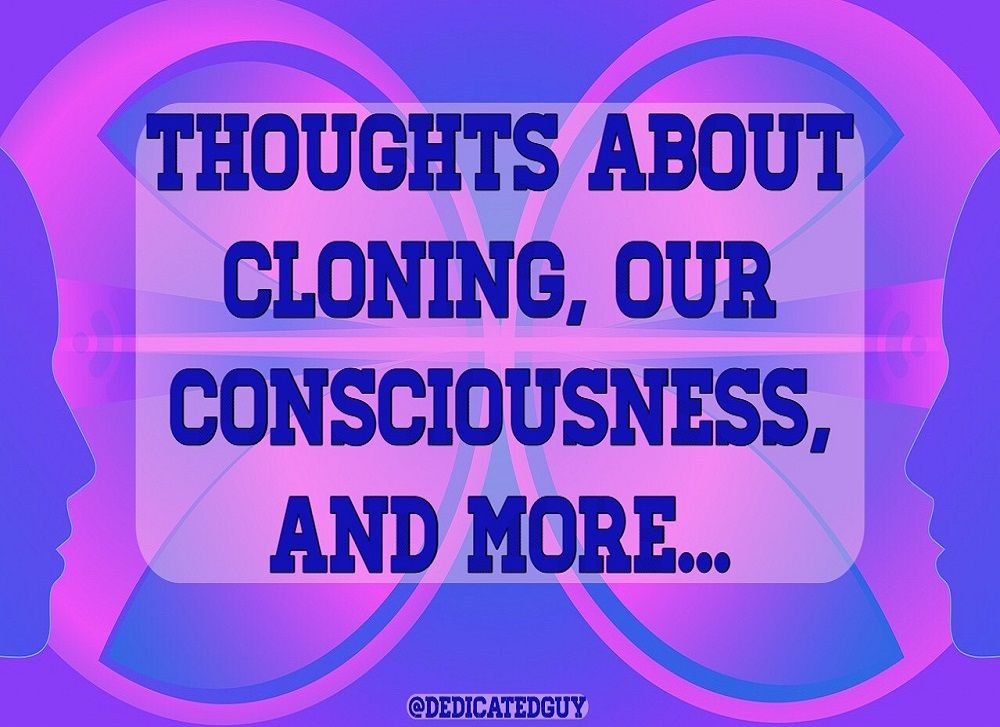
Introduction
When we think about a future full of artificial intelligence that are much faster than us and better than us in practically any sense, one of the conclusions we can reach is that eventually us humans will ultimately stop being biological beings, and develop our next evolutionary step, a new synthetic form, much more capable than anything we can imagine.
We can ask ourselves if it is not dehumanizing that we become "machines"? And of course, we could also ask ourselves how would it feel to experience life itself as a non-biological being?
In short, I would think that it will feel the same (or perhaps much better), but let’s not get ahead of the discussion and see how we can reach that conclusion.
In order to realize why those synthetic individuals will continue to be considered as people just as we do with ourselves right now, we must then have proper understanding about something essential regarding what are the aspects that can shape us and make us become in what we are, and then we will be able to understand why they, in the future, will continue to call themselves "human".

Explanation
If we take strictly the theological route, it would simply be impossible to achieve something similar, since under this perspective our identity is given to us thanks to our “spirit”, “soul” or something similar depending on the religious practices we adopt, which are not associated with something physical and tangible but with the metaphysical.
If instead we approach this through a scientific perspective, we can see that what defines us (including our sense of identity, our ideas, our likes, identity, feelings, and everything that makes us who we are) is quite simply the patterns of neurons that we have in our brain.

It is the arrangement of multiple connections between the billions of neurons in our brain, which defines each of us as a different person. These arrangements are originally very similar between every person before they are born, but as the brain gets information from its environment, as well as experiences, and as it begins to interact with said environment, the connections begin to vary between one human and another, providing us with our own personality, wisdom, and everything else that is reflected in the actions of what we would call "a human being".
Linking how brain structure is related to basic personality traits is a crucial step to improving our understanding of the link between the brain morphology and particular mood, cognitive, or behavioral disorders. | Source
This is something that can be proved both and in various ways, from the psychological point of view, to the neuronal one.
For example, the majority of the people and especially neurosurgeons have known for a long time that people who suffer injuries in certain parts of the brain can undergo some big changes in that individual's personality. There have been people who stopped liking certain things that they used to like before, or weren’t able to recognize their relatives, or obtained different memories, or changed their perspective of the world, or started to walk differently, among others much others examples that I am sure you must have heard or read about them, at least a few times.
This shows us the fact that there is a physical and tangible component that breaks down when something happens to the brain, and therefore, those physical and tangible components are the ones that defined the previous person and define the new person.

What is coming?
Having accepted these conclusions, then we must also accept that these patterns are the ones responsible for creating the concept of “mind”.
We can make a little analogy of any electronic device like a laptop or smartphone and its software. The "hardware" (components, RAM, processor, hard drive, among other parts) is the brain, while the "software" is the mind.
The moment we understand that this is what we are, a complex network of different patterns among countless of neurons, then we can go to the next step.

Today, we have scientists researching about ways to replicate those biological patterns that we find in our brains, because if those patterns are the ones that lead to "an intelligence" and "a human being", and if there was a way to replicate those patterns in a computer able to handle them, then at least in theory we should have at the end of the procedure, the equivalent of a human being made through synthetic ways.
The field of AI is full of people working to replicate or simulate various features of our intelligence. One thing they are certain to replicate is the gradual way that our consciousness turns on. | Source
And given the fact there has already been parts of the brain simulated in artificial environments with experiments, the possibility that someday there will be artificial minds with the same or similar reasoning patterns that we have today, is a certain reality, and it is only a matter of time, no longer of whether it can be achieved or not.

Final thoughts
We can now proceed and answer the question, but what will be felt inside that brain? Well, if our patterns in a biological brain are precisely the same as in an artificial one, then the most rational thing to do is to presume that we will feel as human as before. With a big difference.
Unlike, however, our delicate (and comparably slow) biological brain, in our new "synthetic" environment our brain could think trillions of times faster than before. So for example if someone asks you to calculate the square root of a 50 digit number, you could possibly give the answer before that person finishes articulating the question completely.
This increased processing power will allow us to do things that today we can not even imagine. Have in mind that this is assuming the less ambitious case in which all we do is replicate the a biological brain and its into a synthetic one, but the reality is that when that happens there is nothing that can stop that brain to evolve in just a few moments and reach the same level as our biological brains would reach after millions and millions of years evolving.

Therefore, these beings will be able to do things like create their own virtual reality, and continuing with the creation of more synthetic life, as well as master all the variants of every skill there is, creating an explosion of intelligence and creativity never before imagined. Think about the fact that any human of the future will have an intelligence much greater than Einstein, as well as have a range of expression that goes far beyond what was never imagined or dreamed by historic people like Pablo Picasso, Leonardo Da Vinci and Mozart all combined.
This means that at first we will continue to be the same as always, but very quickly afterwards we will evolve to be “superman”, with much more awareness about the order of things, a deeper understanding of the universe and other beings, and therefore we will arrive to a point that many would say is the equivalent of the ultimate paradise in real life.
What is clear, though, is that thanks to AI, the world of the future could bear little resemblance to the one we inhabit today. | Source
What do you think about this subject?
Do you see humans evolving past our biological form in the future?
References
Images sources
All images are from pexels and pixabay

If these titles sound interesting to you, I assure you the articles will be even better!


Thoughts about cloning, consciousness, & more |

Let's talk about the effects scents have on us |
.jpg)
Is loneliness increasing in our society? |
